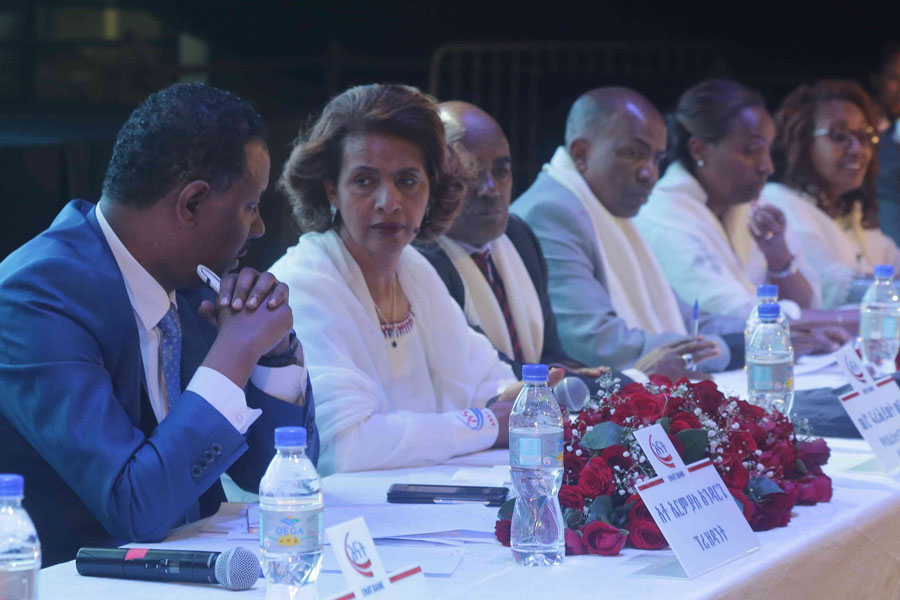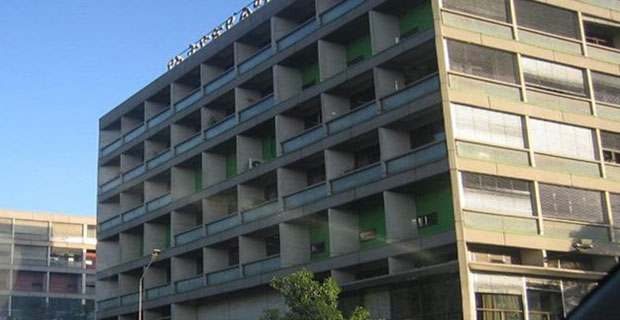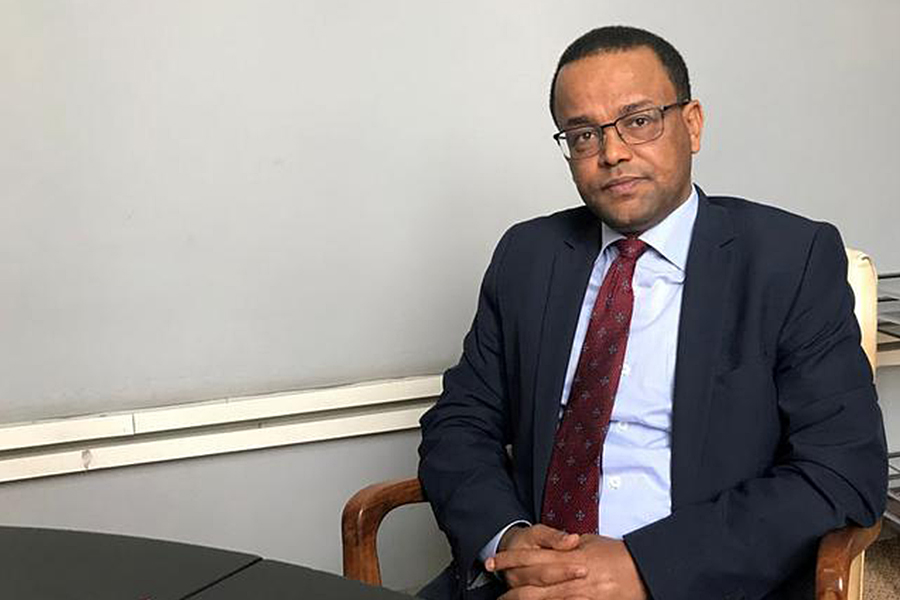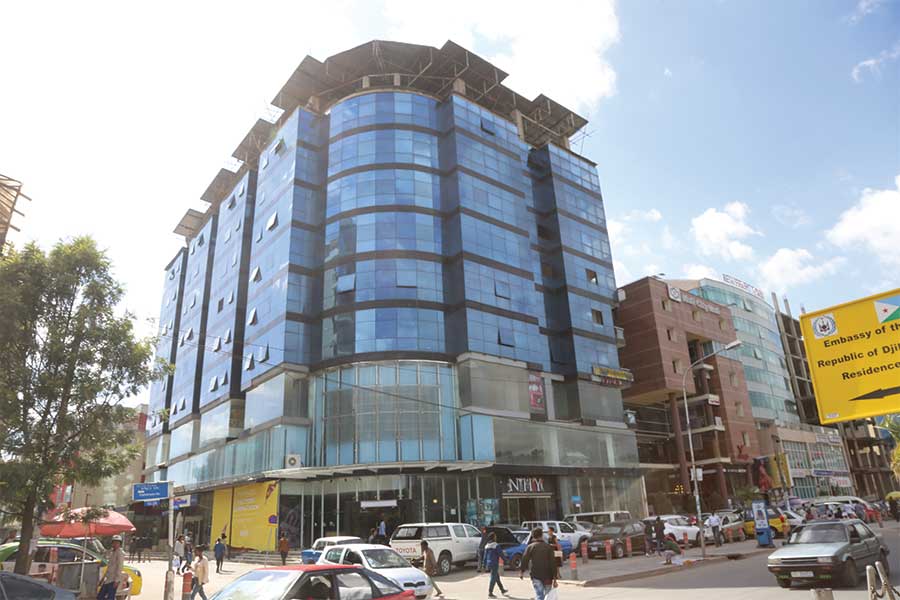
Radar | Aug 07,2021
Oromia Bank recorded strong performance from its operations last year, generating whispers of a rewarding year for its shareholders. Despite challenging economic conditions compounded by social unrest, political instability, and rising crude oil and base metal prices globally, it has seen robust growth in profit and earnings per share (EPS).
Oromia Bank’s net profit surged by 37.8pc to 1.2 billion Br, with EPS growing 37 Br to 307 Br.
This performance has placed Oromia Bank as a major player in the financial sector, ranking sixth of the eight most prominent private banks in total assets with a balance sheet of 114.6 billion Br. The Bank’s total revenue growth was attributed to growing interest on loans, advances, investments in central bank bonds, and incomes from interest-free financing, which raised by 18.8pc to 4.11 billion Br.
It has demonstrated net interest income and revenue growth in recent years. In 2021, its net interest income of 4.46 billion Br although lower than several other major banks, including the average for the eight largest banks. Oromia Bank’s revenue of 4.1 billion Br lower than the average for its peers by half.
Abdulmenan Mohammed, a financial statement analyst at London Portobello Ltd, commended the Bank’s performance. He noted that the Bank’s non-performing loans (NPL) ratio was at two percent, lower by two percentage points than the average for the top industry performers.
Teferi Mekonnen, president of Oromia Bank, attributed a robust management follow-up implemented after loan disbursements to lowering the NPL ratio.
However, experts recommend that the Bank strive to improve its financial performance and key metrics as the industry becomes increasingly competitive.
Teferi acknowledged the intense competition in the industry. Nonetheless, he emphasised that despite these challenges, the Bank’s foreign currency earnings and payment modalities remained strong, with most overseas suppliers and importers opting for Oromia Bank due to “its timely payment settlements.”
Oromia Bank’s net interest income is 73.3pc lower than Abyssinia Bank’s, showing the Bank must work to generate more interest income. Its return on equity (ROE) was 20pc, eight and nine percentage points lower than Abyssinia’s and Awash’s, respectively. However, at three percent, its return on assets (ROA) was higher than several other major banks in its category. Experts believe the loan and deposit growth is reasonable, especially with a loan-to-deposit ratio of 71.9pc, with a loan portfolio of 31.2 billion Br. Although lower other major banks, this was higher than what was held by Wegagen. While Oromia Bank’s net interest income is the sixth-highest in the industry, its net interest margin of six percent is lower than most other banks, suggesting intense competition for deposits and loans. The Bank mobilised a deposit of 43.4 billion Br last year, an increase of 26.6pc from the previous year.
“The liquidity level of Oromia seems good,” said Abdulmenan.
He applauded the modest provision for impairment of loans, advances, and other assets that increased by 38.2pc to 67.5 million Br. The average provision for its peers was 446 million Br, with Awash almost double this amount and the Bank of Abyssinia’s 642.3 million Br.
Oromia Bank’s revenue represented slightly more than half the industry average, showing a one billion Birr surge to that of Wegagen’s. It is much lower compared to the biggest private banks. Service charges and commissions soared by 64.8pc to 1.02 billion Br while other income surged by 168.4pc to 302.5 million Br. An upsurge in income followed by interest expenses increase and distribution to interest-free depositors by 17.9pc to 1.68 billion Br. Salaries and benefits increased by 24.2pc to 1.54 billion Br, and general administration expenses expanded by 38.4pc to 976.2 million Br.
However, while the sixth-largest private bank in the industry, the Bank’s total operating expenses are well-managed with a cost-to-income ratio of 62pc, showing that its executives carefully control expenses.
Werkineh Jelle, an accountant for the last three years at Mekanisa Branch, saw the Bank experiencing a decline in remittance flow as the industry does. He applauded the management’s focus on widening the base of digital banking features.
Oromia Bank joined the banking industry in 2008 with a paid-up capital of 91 million Br raised from 5,000 founding shareholders, a base that has swelled to 14,000 eventually. Its paid-up capital increased by 26pc to 4.36 billion Br, slightly below the regulator’s mandatory demand for commercial banks to meet by 2026. However, the Bank’s capital adequacy ratio remained at 21.3pc, signalling Oromia Bank is well-capitalised. Its total assets expanded by 24.9pc to 52.05 billion Br, outperforming Wegagen’s 43.1 billion Br.
Ali Hussien Mohammed was one of these founding shareholders and a significant shareholder of Alfoz Plaza near the Gerji area. He expressed satisfaction with the Bank’s returns, but believe management could do more to reward them with higher dividends.
“It’s because we are raising the capital,” Teferi Mekonnen, president of Oromia Bank, told Fortune.
He believes the Bank’s capital will grow as shareholders have resolved to increase paid-up capital to 20 billion Br in five years, consistent with an industry-wide trend.
PUBLISHED ON
[ VOL
, NO
]

Radar | Aug 07,2021

Fortune News | Jul 13,2020

Radar | Feb 20,2021

Radar |

Fortune News | Apr 10,2023

Fortune News | Mar 09,2019

Covid-19 | May 31,2020

Commentaries | Feb 18,2023

Radar | Oct 08,2022

Fortune News | Nov 30,2019

Dec 22 , 2024 . By TIZITA SHEWAFERAW
Charged with transforming colossal state-owned enterprises into modern and competitiv...

Aug 18 , 2024 . By AKSAH ITALO
Although predictable Yonas Zerihun's job in the ride-hailing service is not immune to...

Jul 28 , 2024 . By TIZITA SHEWAFERAW
Unhabitual, perhaps too many, Samuel Gebreyohannes, 38, used to occasionally enjoy a couple of beers at breakfast. However, he recently swit...

Jul 13 , 2024 . By AKSAH ITALO
Investors who rely on tractors, trucks, and field vehicles for commuting, transporting commodities, and f...

Jul 5 , 2025
Six years ago, Ethiopia was the darling of international liberal commentators. A year...

Jun 28 , 2025
Meseret Damtie, the assertive auditor general, has never been shy about naming names...

Jun 21 , 2025
A well-worn adage says, “Budget is not destiny, but it is direction.” Examining t...

Jun 14 , 2025
Yet again, the Horn of Africa is bracing for trouble. A region already frayed by wars...